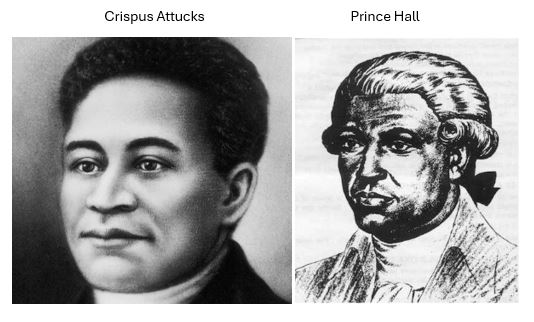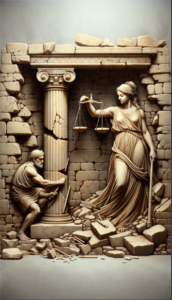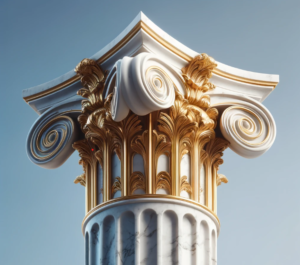You may be reading the title of this article and thinking to yourself the story about to be told is a Christian story. Far from it. This story is about two Black men that never met each other nor cross paths in life but the death of one of them led to the birth of something special by the other.
It starts in 1723, when a baby boy born into slavery in Massachusetts escapes his master and frees himself as a young man. This self-emancipated slave become a sailor for a British whaling ship and lived his life when not at sea in the area he was enslaved. Standing at 6’ 2’’, this man was considered of mixed race or a “mulatto”. He stood out among men during a time when the average height of a European was 5’6’’ to 5’8’’. This British sailor drank in the same “watering holes” of other sailors in and around the port of Boston.
In 1738, another baby boy was born into slavery. This baby boy was not born in the British Colony of America but instead on an island situated west of the North Atlantic Ocean, east of the Windward Islands and the Caribbean Sea called Barbados. When he was a young man, he was sold to his new master in Boston, Massachusetts. Not a lot is known about this young man’s formative years after being sold. His latter years are to some degree well documented.
Two men born approximately 15 years apart thus far have two things in common: slavery and Boston, Massachusetts. You may be asking, is this the connection? Well, not quite!
The British Parliament imposed two taxes on the American colonies. The first was called The Townshend Acts and the Stamp Act. The Townshend Acts, named after Charles Townshend, the British Chancellor of the Exchequer, these acts-imposed duties on a variety of goods imported into the American colonies, including glass, lead, paints, paper, and tea. The Townshend Acts followed the earlier Stamp Act and were part of a broader strategy by the British government to levy taxes on the colonies without their consent. While the Stamp Act was enacted in 1765 was a significant tax legislation passed by the British Parliament that imposed a direct tax on the colonies of British America. This Act required that many printed materials in the colonies be produced on stamped paper produced in London, carrying an embossed revenue stamp. These printed materials included legal documents, magazines, newspapers, and many other types of paper used throughout the colonies.
These two acts caused tension between Britian and the American colonies. The taxes imposed by the British Parliament, where enforced by the military. In 1768, British troops were stationed in Boston to enforce the unpopular laws and taxes imposed by the British government, including the Townshend Acts. The presence of these troops in the city was deeply resented by the colonists, who saw it as a form of military occupation and an infringement on their autonomy.
The taxes and trade restrictions imposed by the British government, along with the presence of British troops competing for local jobs, contributed to economic hardship and increased unemployment among the colonists. This economic strain heightened tensions and fostered resentment against the British authorities and soldiers.
With these taxes as the backdrop of tensions between the American colonies and Britian, there were numerous incidents of conflict and provocation between the colonists and the British soldiers. These included verbal altercations, physical confrontations, and the general harassment of soldiers by the colonists, as well as aggressive behavior by the soldiers towards the colonists.
On the evening of March 5, 1770, a small altercation between a British soldier and a colonist escalated rapidly. A crowd of colonists gathered around a sentry outside the Custom House, hurling insults, snowballs, and debris at the soldiers. The situation intensified when additional troops arrived to support the sentry. Amid the confusion, panic, and chaos, the soldiers fired into the crowd, killing five colonists, and wounding several others. The first killed was the man born in 1723. His name was Crispus Attucks.
After hearing of the Boston Massacre, the second man born in 1738, Prince Hall was freed by his master, William Hall the same year that Crispus Attacks was killed in 1770.
The Boston Massacre led to the Revolutionary War five years later in 1775. Prince Hall and other black soldiers called the “Bucks of America” fought in the Revolutionary War in various campaigns. After the Revolutionary War, Prince Hall started the first African American masonic lodge in Massachusetts.
The death of one man born into slavery altered the life of another slave in which their common circumstances at birth where catalysts that helped produce a country and established a masonic order for black men during the era of slavery.


